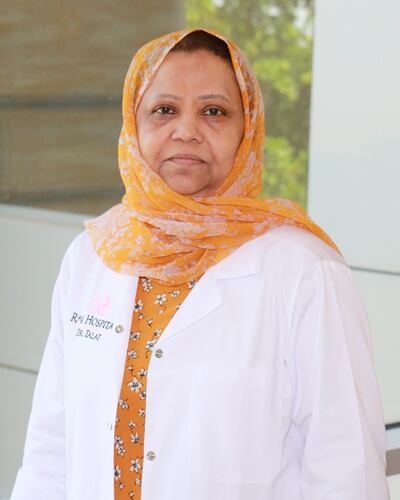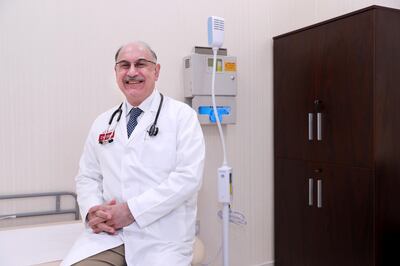For women, the menopause is a natural part of getting older, but the mental and physical changes it can bring are not always welcome. While some women experience few or no side effects, for many a drop in oestrogen levels can result in several related health problems and unpleasant symptoms, including risk of cardiovascular disease, osteoporosis and vasomotor effects, as well as low moods and other unwanted physical changes, such as weight gain and hot flushes. So this month, when British company ProFam announced a new treatment that allows women to delay the onset of menopause by as many as 20 years, it got people talking.
The main purpose of the treatment is to mitigate the nasty effects menopause can have, ProFam says, but there is a possibility that it could also lead to prolonged fertility for women, allowing them to have children well into their fifties and even sixties.
How the procedure works
The procedure involves performing keyhole surgery to remove a small piece of ovarian tissue, which is then sliced up and frozen at extremely low temperatures, allowing it to be preserved for several years. When a woman reaches menopausal age, the tissue is thawed and grafted into the body to restore dropping hormone levels. Ovarian tissue cryopreservation – the technical term for this treatment – is not new. Doctors across the world have been performing the procedure on young women for years. However, it has largely been used to help cancer sufferers who face chemotherapy to preserve fertility, giving them the option to conceive later down the line if they make a full recovery.
While there is limited research into the success of this treatment, a study published in 2017 found that, while the operation was still in its experimental phase, at least 80 babies had been born thanks to reimplanted ovarian tissue. However, the treatment was not offered for the sole purpose of delaying the onset of menopause, until now. "This is the first project in the world to provide healthy women with ovarian tissue cryopreservation purely to delay the menopause," the company's chief medical officer, Yousri Afifi, told The Sunday Times.
Professor Simon Fishel, the co-founder of ProFam and the doctor who pioneered the IVF treatment, added that the treatment had the potential to be significant to any woman wanting to delay the onset of menopause for any reason. ProFam points out that throughout history, women did not live much beyond their fertile years, whereas women today will, on average, live for 30 or more menopausal years.
The procedure costs between £7,000 and £11,000 (up to Dh49,000), and the younger the patient, the longer the effects have the potential to last. For example, ProFam says that tissue taken from a 25-year-old could delay menopause by up to 20 years, whereas tissue from a woman in her forties might delay it by five years.
This has yet to be proven. As a pioneering treatment, there is little solid evidence that the treatment will guarantee a delay for any extended period of time.
“The technology is the same for both fertility preservation and using this approach for extending the [onset of] the menopause,” reads a statement on ProFam’s website. “Given the success with fertility preservation, we believe we are now in a position to offer the opportunity to postpone the menopause.”
So far, nine women in the UK have had their ovarian tissue frozen with a view to delaying menopause when the time comes. According to Dr Fishel, the treatment could help combat rising infertility rates, caused by many women choosing to delay having children until their late thirties in order to pursue a career or other socioeconomic reasons.
The news has been met with mixed reactions from those in the medical field, including doctors in the UAE, with many claiming it is too soon to predict any potential side effects that could come with using ovarian tissue in this way, while other doctors say they believe it will work as intended in the long run. We spoke to two UAE doctors who stand on opposite sides of the fence.
Who the treatment is good for
“This is a great initiative that will save many women from the side effects of menopause and for those who cannot take hormone replacement therapy," says Dr Talat Masroor, senior consultant and head of department, Obstretics and Gynaecology at RAK Hospital. In addition to the physiological symptoms listed above, some other side effects of menopause include hot flashes, vaginal dryness and itching, a decreased libido, changes in mood and memory span, incontinence and weight gain.

"Having said that, the procedure is still in its nascent stages and will take time to prove its worth," adds Dr Masroor. "We need to observe it closely for at least another three to four years to ensure its complete success. If it is successful, then it will be revolutionary in the field of medicine.
“In the light of the above, I think it’s too early to say whether it will be available in the UAE; we need to wait for a few years. Traditionally, the UAE is always open to absorbing latest technology in its healthcare sector, so we hope that the procedure works in the long-term and we are eventually able to offer it to residents here.”
“This is the traditional ovarian tissue preservation technique we have been performing now for approximately five years. We perform keyhole surgery on the patient, and we take small tissues of the ovary and we freeze it. When the patient wants to have a baby, if the ovary is not functioning or she is going through menopause, we take these tissues, and we put them back into the body," says Dr Fadi Baladi, internal medicine consultant at Burjeel Hospital, Abu Dhabi.

“People choose to have this treatment for many reasons, such as marrying older and other social factors. It gives women the chance to preserve their ovary at a young age when the ovarian quality is better. However, when you take the ovary tissue and reimplant, it will work for six months, maybe one year, but not more. We cannot stop the menopause.
“I cannot delay the function of the ovary. I can give the patient hormonal replacement therapy to give her a period after the menopause, but the ovary is not functioning as such."








